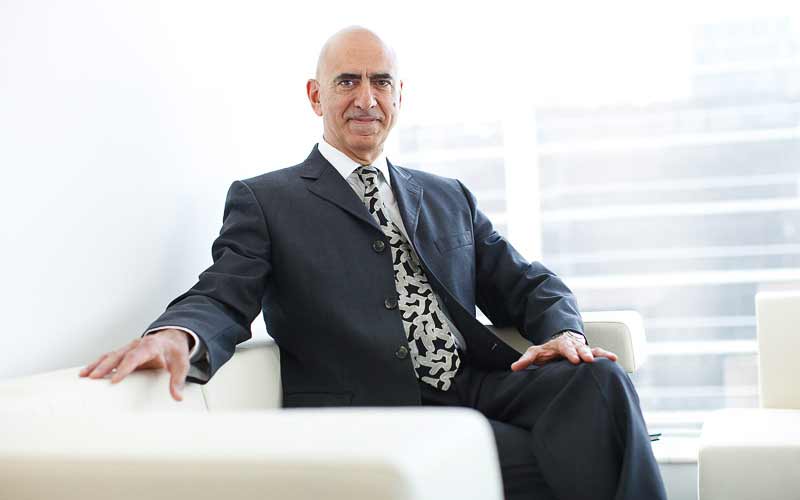Following the announcement in November that Marriott International is to buy Protea Hotels and acquire 116 properties in Africa, Alex Kyriakidis, president and managing director of Marriott International, Middle East and Africa, tells Hotelier Middle East more about the mammoth deal...
When the deal closes, Marriott will manage approximately 46 percent of the rooms, franchise approximately 40 percent of the rooms, and lease approximately 14 percent of the rooms. Is this how you foresee the operation going forward? Why the mix of management, franchise and lease?
We will aggressively grow our expanded brand portfolio of MI and Protea brands across the MEA region. We look at each deal on its merits with our preference being management or franchise models

| Advertisement |
Will the Protea hotels be rebranded under existing Marriott brands?
We expect to keep the brands, but we may find opportunities to convert some to existing Marriott brands. For example, we believe the African Pride hotels will make great additions to our Autograph Collection. Any decision about re-branding specific properties will not occur until after the transaction is completed and we have the opportunity to consult with the owners of those hotels.
When Marriott acquires a new brand, what steps are taken? E.g. what needs to be done to streamline the brand, bring into the system etc?
Merges and acquisitions always taken time but what is important is to ensure both companies have similar core values which we believe is the case with Protea Hotels. The company already has a well-respected footprint in Africa and a talented management team in place. Once the transaction is complete our team will work together to identify key areas to be streamlined in order to deliver value and greater growth for Protea’s hotel owners
The acquisition is of 116 hotels comprising 10,184 rooms across three brands in seven countries, which means Marriott now has 23,000 rooms in Africa. Of the 23,000 rooms, how many are operational?
All the 116 hotels are operational.
What other details can you share on Marriott’s African pipeline?
Marriott has ten properties in three countries, including The JW Marriott Hotel Cairo Mirage City in Egypt and the Renaissance Tlemcen in Algeria. In addition to the Kigali Marriott Hotel, the company has 23 hotels in the Africa pipeline, 10 of which are in Sub-Saharan Africa, including the Accra Marriott Hotel in Ghana (2014), The Ritz-Carlton Reserve Tamuda Bay in Morocco (2014), the Courtyard by Marriott and Marriott Executive Apartments Addis Ababa in Ethiopia (2015), the Libreville Marriott Hotel in Gabon (2015) and the Contonou Marriott Hotel in Benin (2015).
What were the main development issues to come out of the recent AHIF event?
Poor infrastructure (including transport, utilities), high development costs (most materials and equipment are imported), lack of experienced owners, asset managers and project managers, remain the main challenges in Africa, but we are seeing improvement over the past few years in some key markets.
The bulk of this expansion is in South Africa; what other countries are now on this agenda?
In addition to its industry-leading 80 hotels in South Africa, Protea Hotels has a significant presence in Malawi, Namibia, Nigeria, Tanzania, Uganda and Zambia.
Are there any deals in Marriott’s history of expansion in new markets that are similar?
Yes there have been two similar acquisitions in 2011 and 2012.
In 2011 we launched a joint venture to manage and franchise a new lodging co-brand across Europe and Latin America, AC Hotels by Marriott. At launch over 90 existing AC Hotels in Spain, Italy and Portugal were be re-branded to AC Hotels by Marriott.
In 2012 we acquired the Gaylord hotel brand from Ryman Hospitality Properties, Inc. In this situation, Ryman continued to own the existing four Gaylord hotels in the US and Marriott International managed the properties under long-term agreements. The transaction added five hotels and 8,100 rooms to our US portfolio.
Is such a major acquisition rare?
Marriott International is constantly exploring opportunities to expand in order to meet the growing demands of the global traveler.
What is the significance / impact of this acquisition?
This acquisition is a significant milestone in the growth of our regional presence. One being the sheer size of the Africa market and the speed in which it is growing (by 2050, one in four people on the planet will be African) and the second being that overnight we will become the biggest hotel chain in the content, which in itself speaks volumes.
As someone who’s overseen a myriad of deals during his career, what is special about this deal?
There are several key unique attributes
• Scale on a continent which is emerging – Protea has a substantial footprint on a rapidly emerging and growing continent
• Quality of team – Protea’s team is highly regarded and respected in the industry
• Opportunity for Gen X/Y loyalty – by combining Protea’s footprint with our Marriott Rewards loyalty programme we will offer the Gen X/Y Africa traveler an opportunity to enjoy global recognition and rewards
• Leverage for growth – the platform will be a catalyst to the growth of all of our brands across Africa
The proposed terms of the transaction are not being disclosed at this time – when do you expect to disclose this?
The parties stated that they plan to sign definitive agreements by year-end 2013 and the transaction could close in the first three months of 2014. In any event, Marriott does not expect the transaction would have a material impact on its 2014 results.









 Search our database of more than 2,700 industry companies
Search our database of more than 2,700 industry companies









